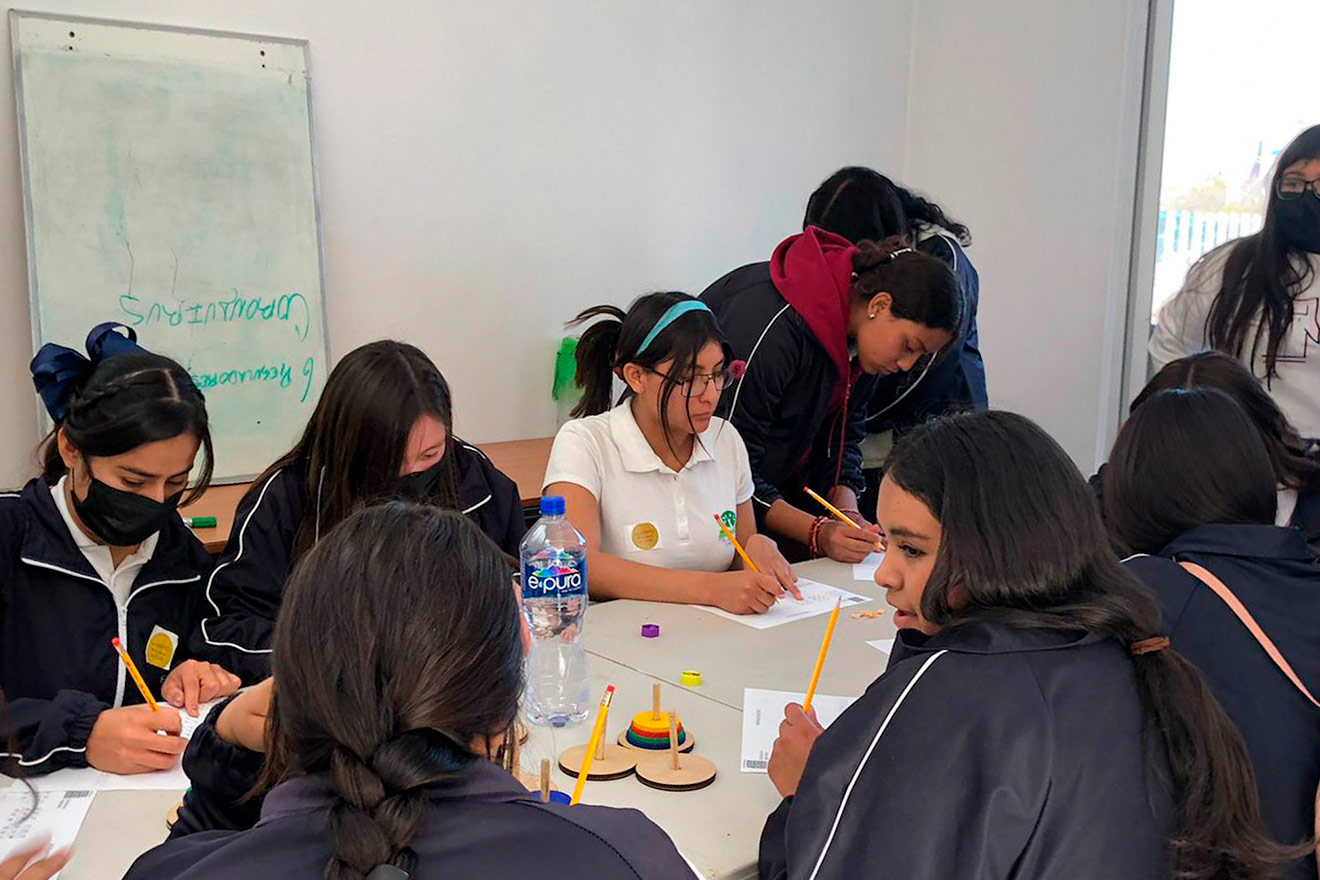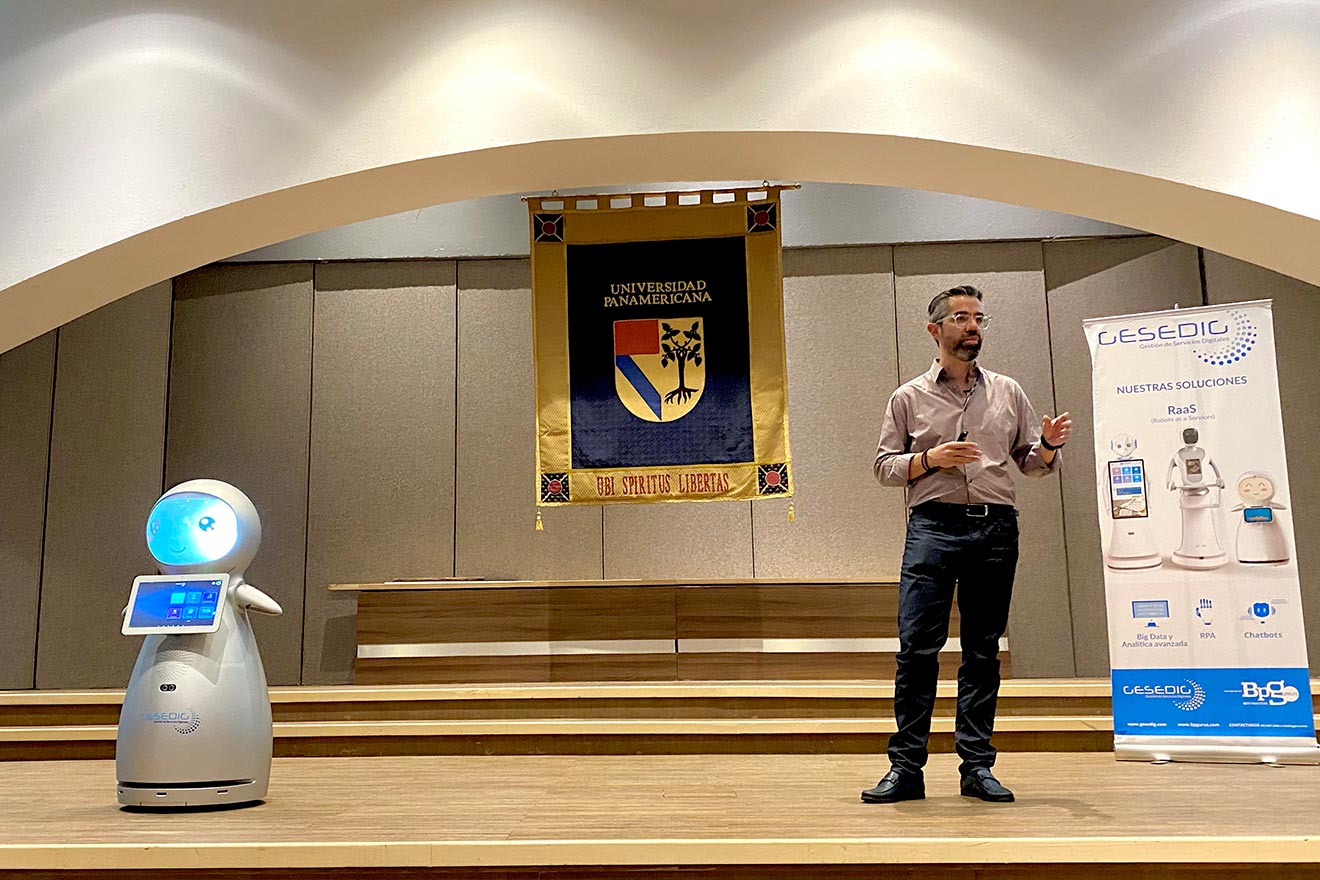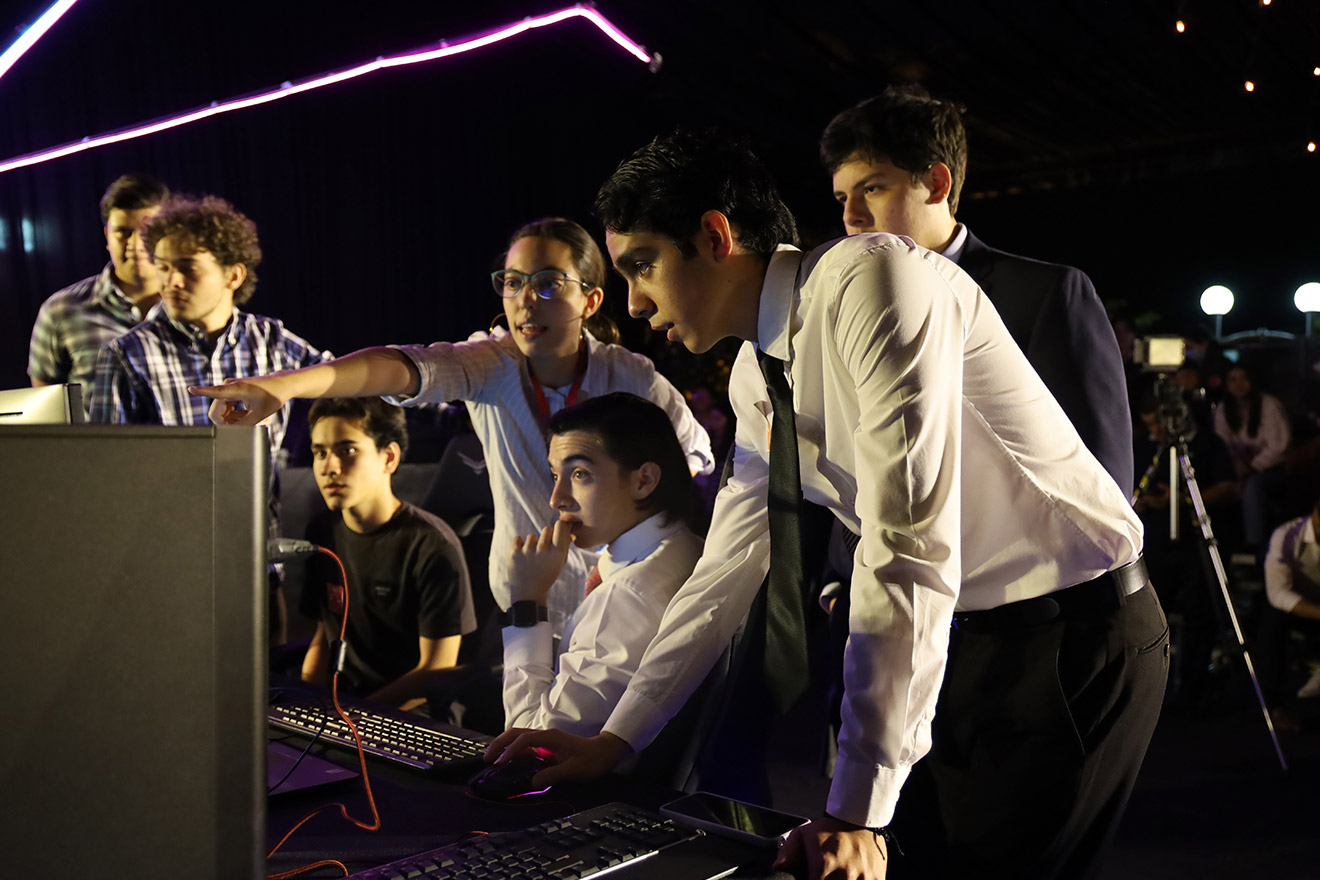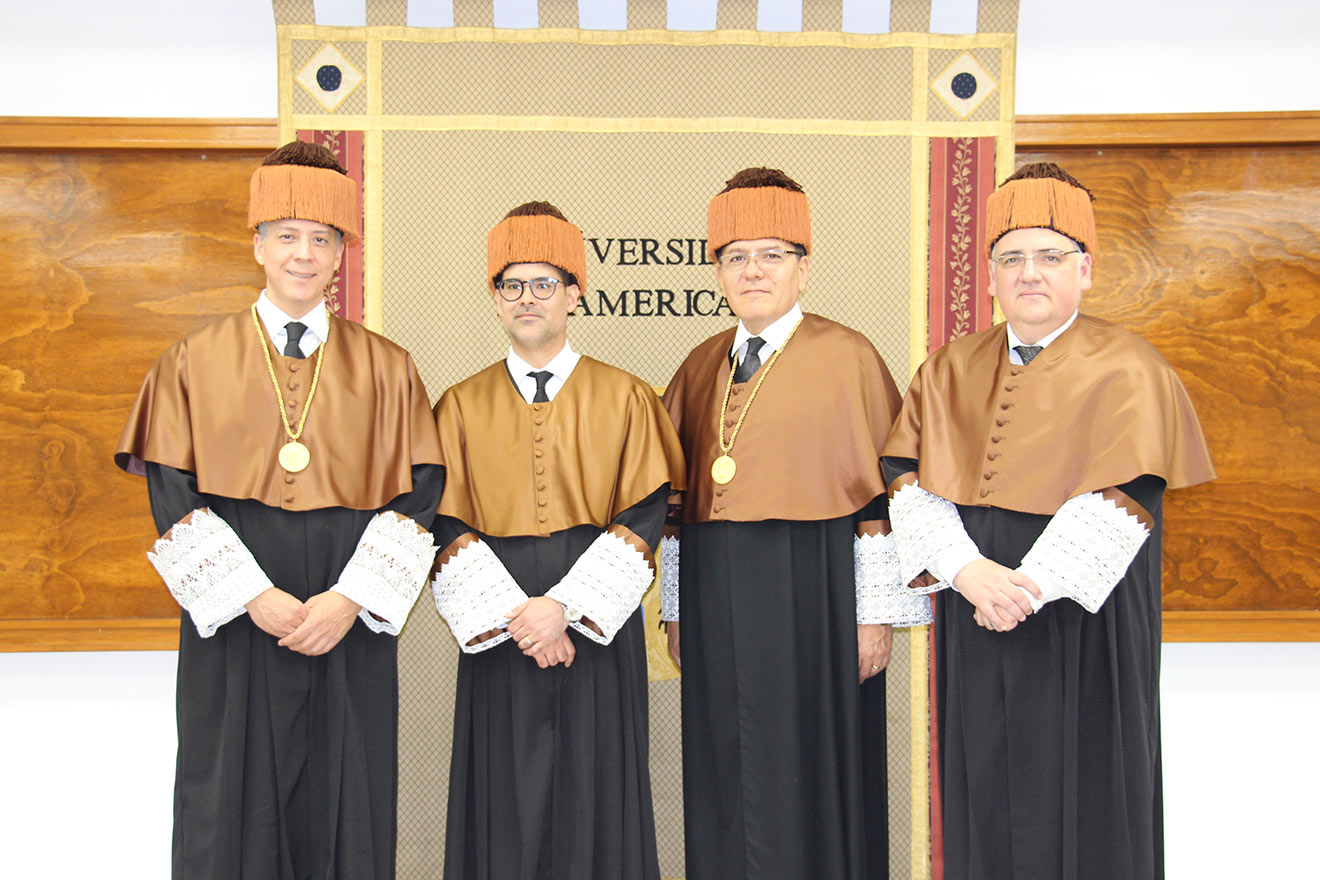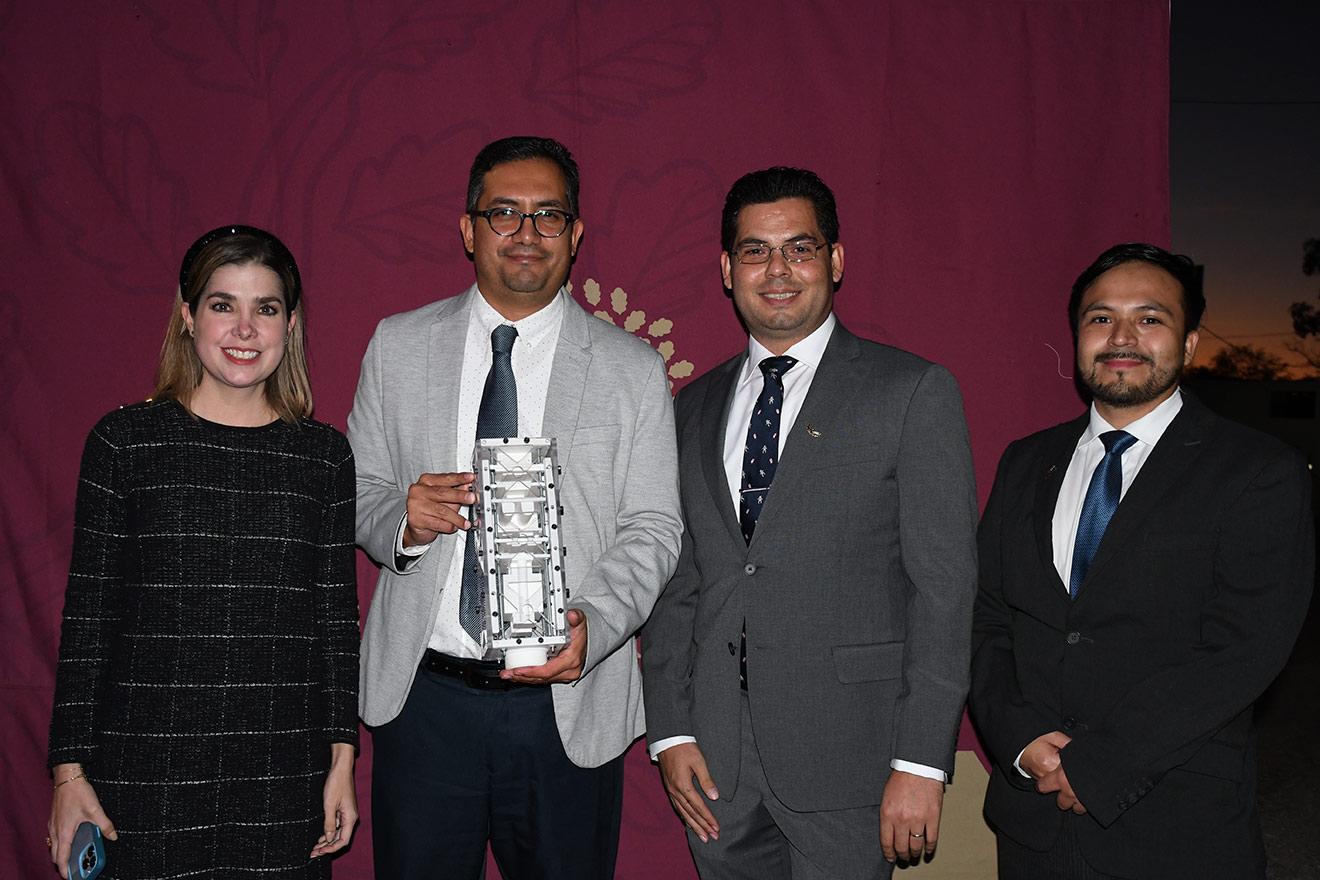Mexico City, August 26, 2022.- Misión Colibrí is the Space Laboratory of Universidad Panamericana, developed in collaboration with the MIT Space Propulsion Lab. Within this laboratory, a team of more than 75 students from different undergraduate programs at Panamericana, join efforts for the design and construction of two space missions: Pakal and Constelación AztechSat.
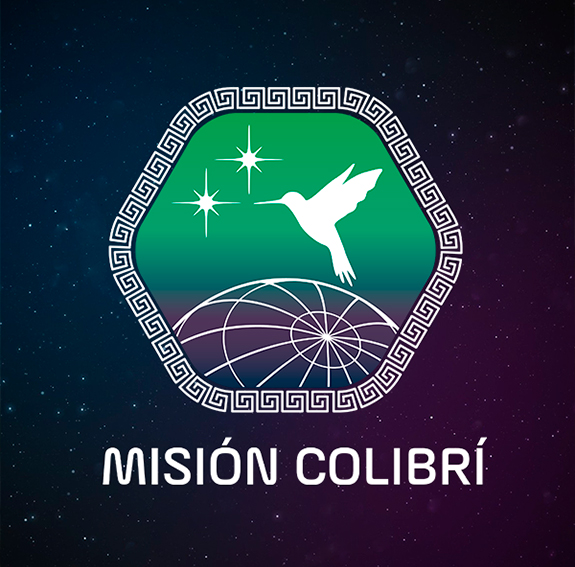
Pakal is a miniaturized cubesat satellite, also known as a 3-unit cubesat nanosatellite, which has the important mission of measuring atmospheric density changes in low Earth orbit to innovate tracking and navigation sciences, while seeking to add to space debris mitigation efforts by testing innovative space technology designed by undergraduate students at Universidad Panamericana.
But why is it important to mitigate space debris and what is the importance of measuring atmospheric density? We understand by space debris any artificial object left by man in space that has no current function. This debris can be a gram of paint or a screw to a satellite whose useful life is over.
The mere existence of space debris is a danger because it jeopardizes the success of operational or new missions, the lives of astronauts, and even the way we live today.
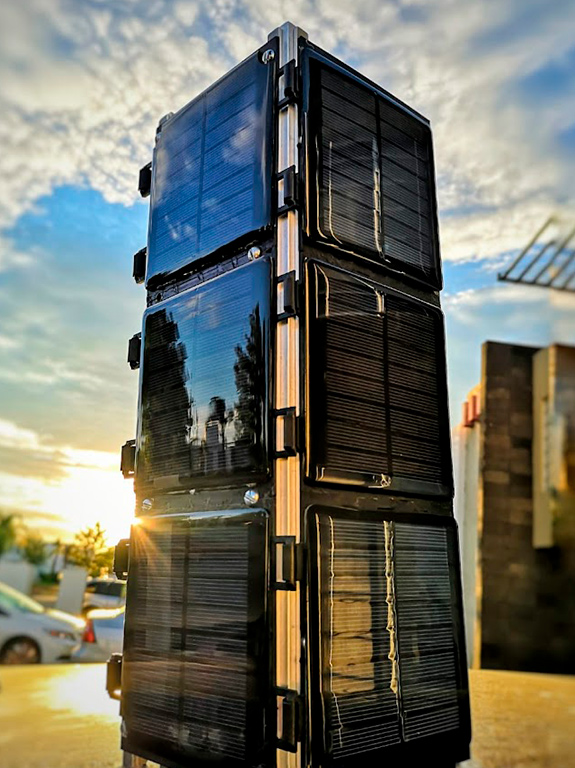
To give us an idea, an object in low Earth orbit travels at a speed of 32,400 km/h or 9 km/s. Can you imagine a simple screw impacting a functional telecommunications satellite or an astronaut at that speed? The result would be catastrophic, generating more debris or a fatal accident.
Space debris puts our telecommunications at risk if it impacts against it, since nowadays practically everything we use works thanks to satellite technology, such as GPS, Google Maps or Waze, the Internet, telephone calls or the observation of the planet to prevent catastrophes generated by atmospheric phenomena (hurricanes, fires, tornadoes, etc.).
To further understand the problem, ESA (European Space Agency) estimates that there is just over 9,000 tons of debris currently orbiting our planet. Space debris is an issue we need to pay close attention to.
The importance of Pakal
Pakal seeks to measure changes in atmospheric density accurately, one of the most important data to track and map objects such as space debris more accurately, make more accurate weather forecasts, study and prevent atmospheric phenomena, among other things; the scientific impact is enormous.
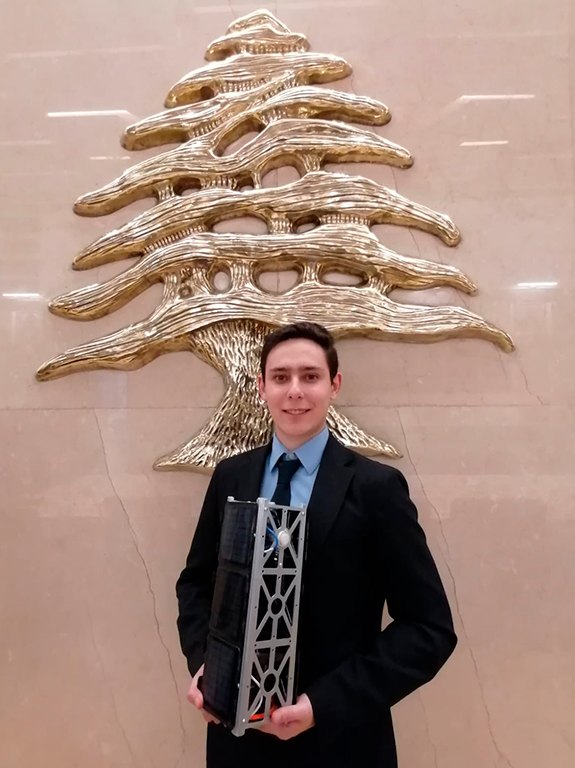
However, the project also has a very important educational aspect, since it manages to promote quality STEM (Science, Technology, Engineering and Mathematics) education that complements the university careers of those of us involved, through the development of scientific publications and articles, which are disseminated in national and international scientific congresses, such as the IAC (International Astronautical Congress).
In addition, this work has helped to boost the participation of women in STEM activities, as today we have a team made up of 48% women.
By the time this nanosatellite is launched, more than 100 students will have graduated with the experience of having built a space system or helped put it into orbit; for Pakal is not only about building the nanosatellite, but also about developing patents and intellectual protections throughout its life cycle, to mention just a few of the roles of the interdisciplinary team members.
Undoubtedly, Pakal is a mission that strengthens the space industry in Mexico and is only the first of several scientific, educational or commercial projects to be carried out at the Space Laboratory of the Universidad Panamericana. It is a small step in space exploration, but a great leap in technological innovation in Mexico and Latin America.
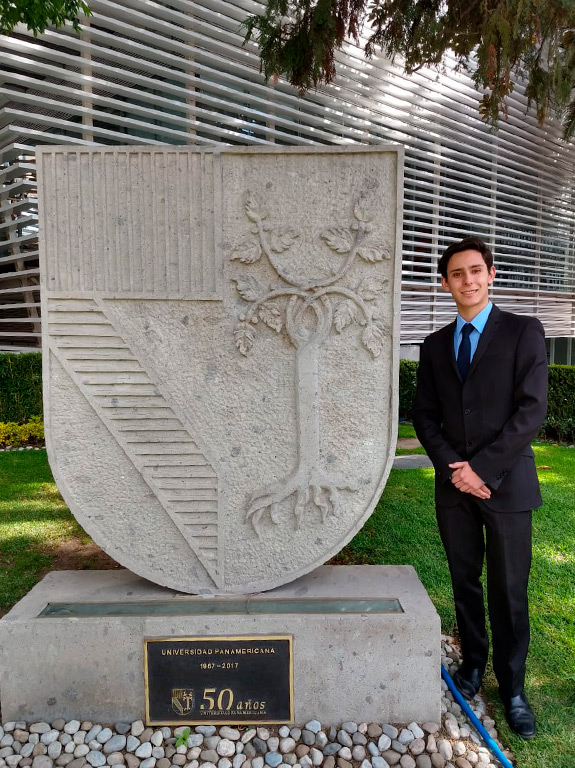
Author details:
Eduardo López Taymani Vieyra, Project Manager of Misión Colibrí.
Would you like to help Pakal or be part of Misión Colibrí? Contact Eduardo at: 0225690@up.edu.mx



